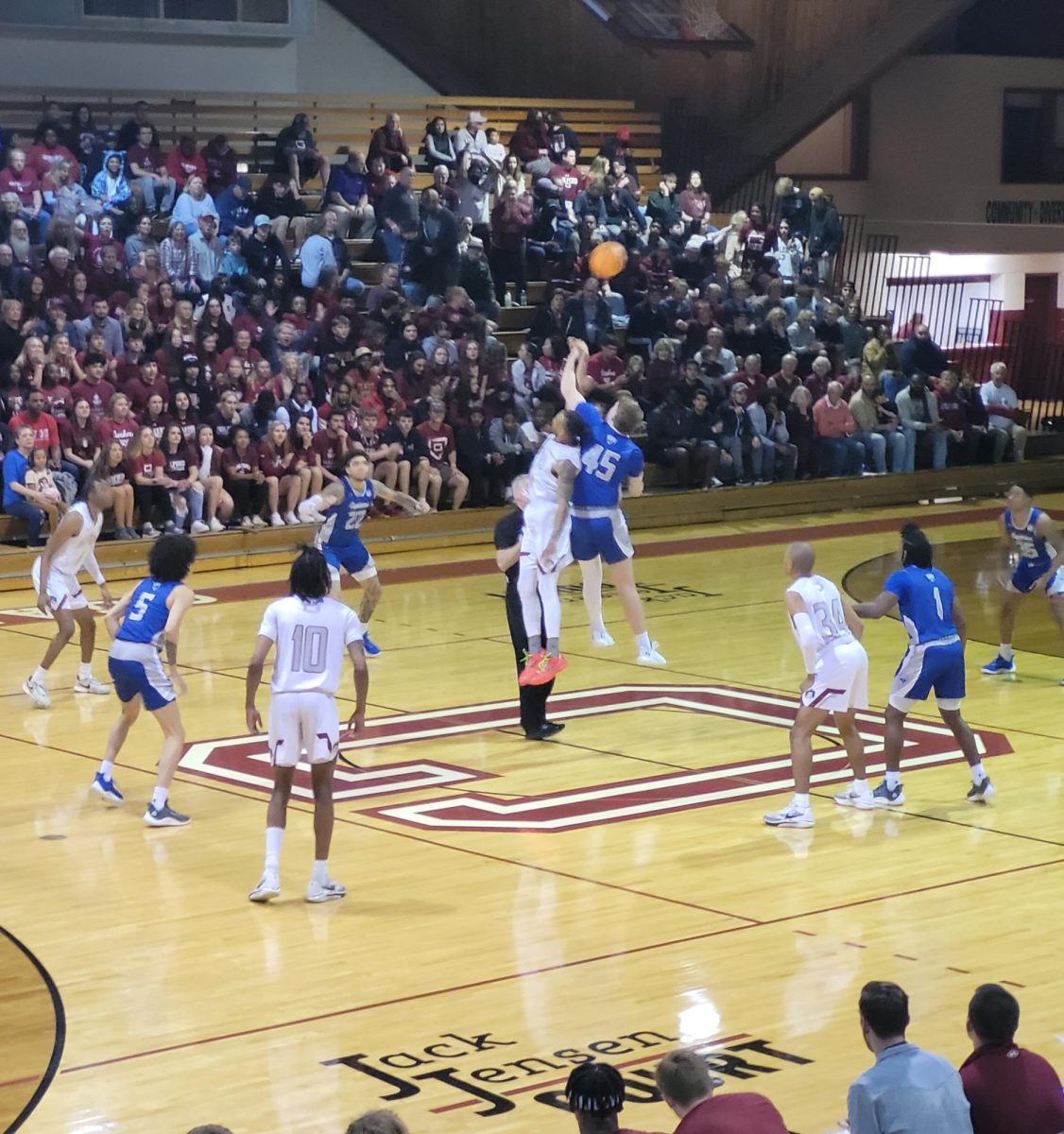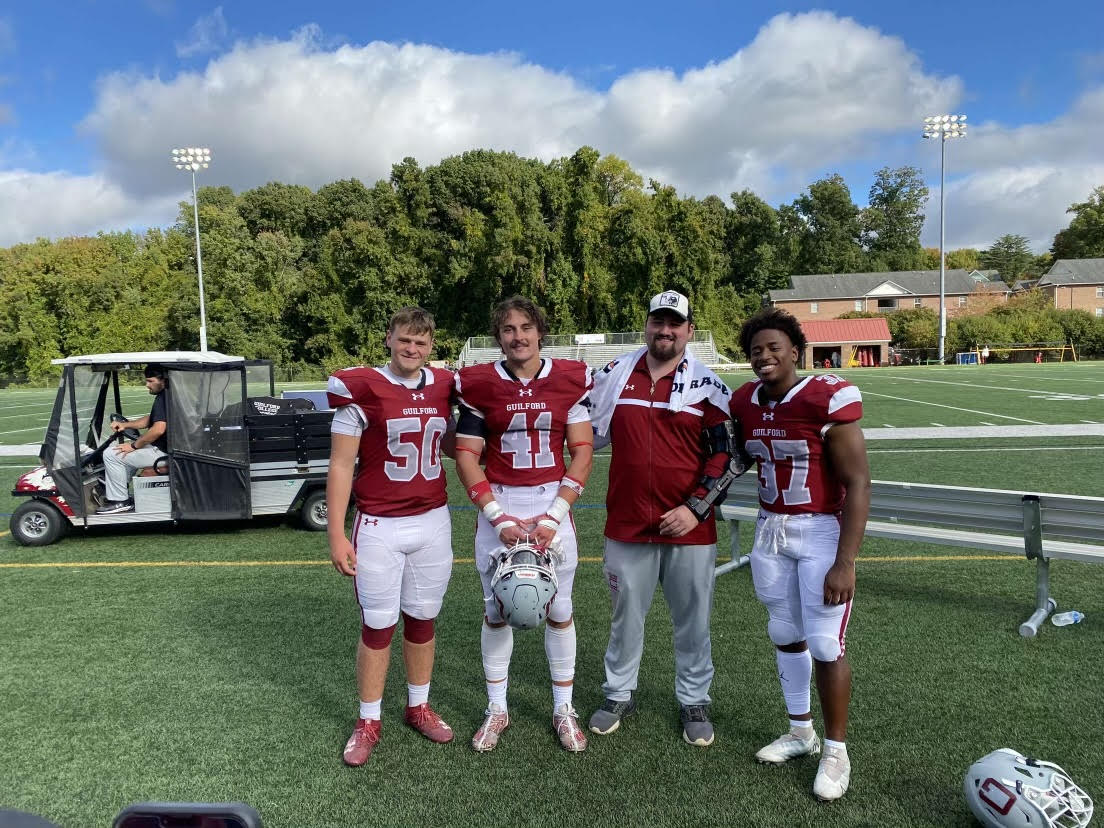On Sept. 14, 2013, around 2:30 a.m. in Charlotte, N.C., Jonathan Ferrell crashed his car in Bradfield Farm, a subdivision 17 miles from downtown Charlotte.
Instantly, he kicked out his back window to free himself from the wreckage.
After he could not find his cell phone, an injured Ferrell approached the closest home in the neighborhood.
A woman, home alone with her infant daughter, answered. According to CNN, before even listening to Ferrell’s situation, she panicked and called 911. “I need help,” the woman told the 911 operator.
“There’s a guy breaking in my front door. He’s trying to kick it down.”
Moments later, the police arrived.
One of the three officers tried to use a taser on Ferrell. He missed.
Officer Randall Kerrick, only three years older than Ferrell, fired 12 shots, 10 of which hit and fatally wounded Ferrell.
“Ferrell’s death, and so many like it, are part of society’s culture of fear of young, black males,” said Assistant Professor of Justice and Policy Studies Barbara Lawrence. “An officer’s legal use of force must match the force being used in the encounter.
“Statistically, you do not often see young black men shooting at police officers.”
At the time of his death Ferrell was unarmed. He would have turned 25 last October.
“He was only seeking help,” said Georgia, Ferrell’s mother, in a MSNBC interview.
According to The New York Times, the results of the autopsy found the bullets that hit Ferrell had traveled downward, suggesting that at the time of the shooting, Ferrell was already on his knees or lying on the ground.
“Well, I thought about the Trayvon Martin case,” said sophomore football player Daytwyn Rascoe. “I thought it was sad that someone who was unarmed would be looked at as a threat.”
In addition, the toxicology report showed no signs of alcohol or drug use.
After graduating from Florida Agricultural and Mechanical University, a historically black university in Tallahassee, Ferrell had moved to Charlotte to be with his fiancée, his high school sweetheart. Ferrell played football for FAMU from 2009–2010.
Tragically, Ferrell’s death is reminiscent of other black male lives stolen by police brutality: Oscar Grant, Kimani Gray, Amadou Diallo and so many others.
“The story is shocking, but not surprising,” said junior and Community and Justice Studies major Sara Minsky. “It makes sense that 911 was called, given that Ferrell was injured, but why didn’t an ambulance come?”
The Mecklenburg Police Department was quick to state that Kerrick’s actions were “excessive.”
Although the first grand jury acquitted Kerrick, Attorney General Roy Cooper resubmitted the case to a second grand jury, which found him guilty of voluntary manslaughter on Jan. 28.
The indictment marked the first time in over 30 years that a Charlotte-Mecklenburg police officer has been charged with an on-duty shooting.
And as unarguable as that is, the use of lethal force also reflected “the same narrative that has always portrayed black males as a danger,” said Director for Diversity Training and Development Jorge Zeballos.
Although most police officers must pass a “Use of Force” test to carry weapons, additional protocol should follow.
“(There should be) more emphasis and training on cultural sensitivity,” said Lawrence. “In many instances, you are usually operating on a young officer’s fears that are simultaneously influenced by cultural cues.”
Lawrence works with the Greensboro Police Department’s Bias Based Policing Committee to incorporate implicit bias education in all trainings throughout the department.
She also found Kerrick’s indictment to be a surprise and a hopeful sign of change.
“I’ve never had a trusting relationship with the cops,” senior football player Kevin Tiller said. In his experience, “cops have always been late.”
“Sometimes (cops) have too much authority,” said Rascoe.
Another student’s reflection touches on how Guilford’s own Judicial Affairs and Public Safety bodies do not function outside of cultural patterns.
“I feel like if something major would happen, Public Safety wouldn’t be able to help me at all,”said the anonymous student. “I don’t want to count on them … and the same for the Judicial Affairs office.”
Without intentionality from administrative offices to educate workers on racialized dynamics, there is no reason why Guilford would operate differently than the outside world.
“Folks that are working here receive the same messages as everybody else does,” said Zeballos.
Guilford’s departments may benefit from a sensitivity training of their own.
Ferrell’s murder should not only be a catalyst for the Charlotte Police Department to incorporate educational and reflective sensitivity trainings, but our own “anti-racist” institution as well.






